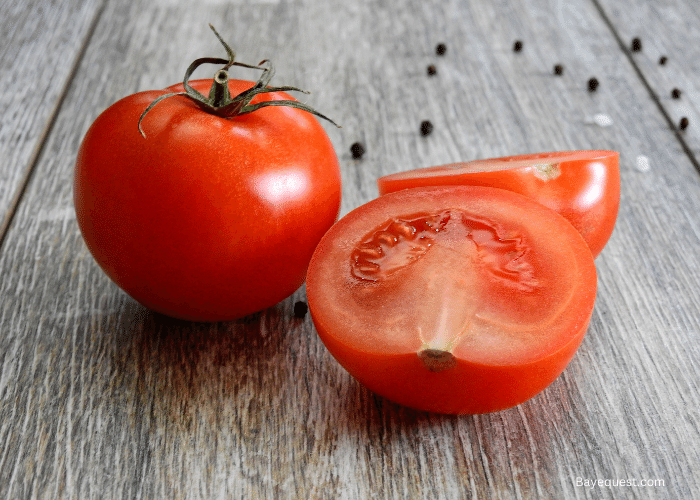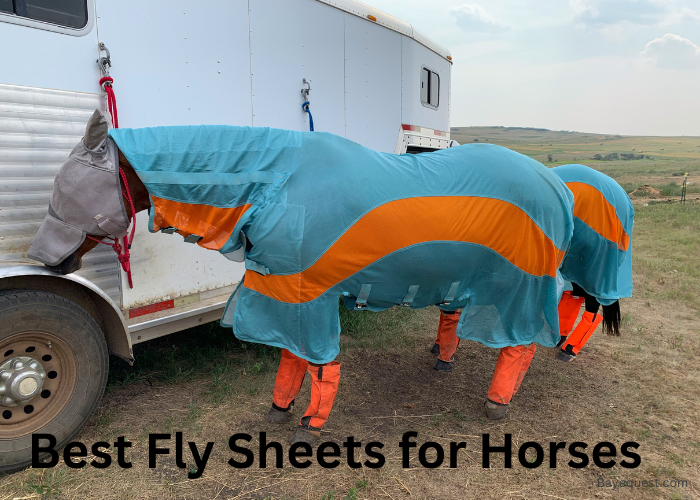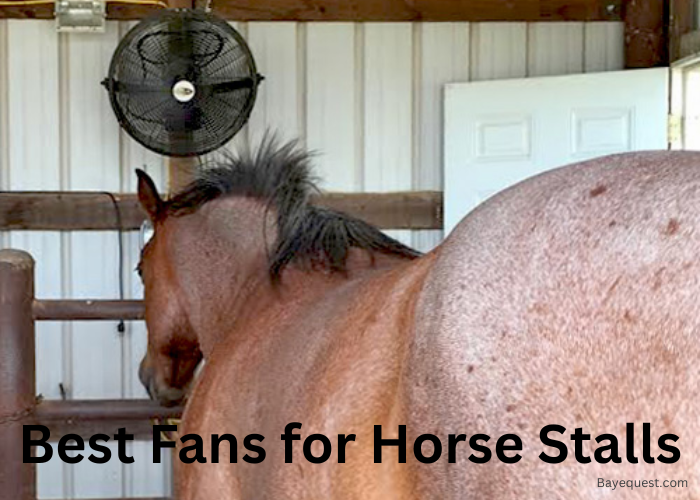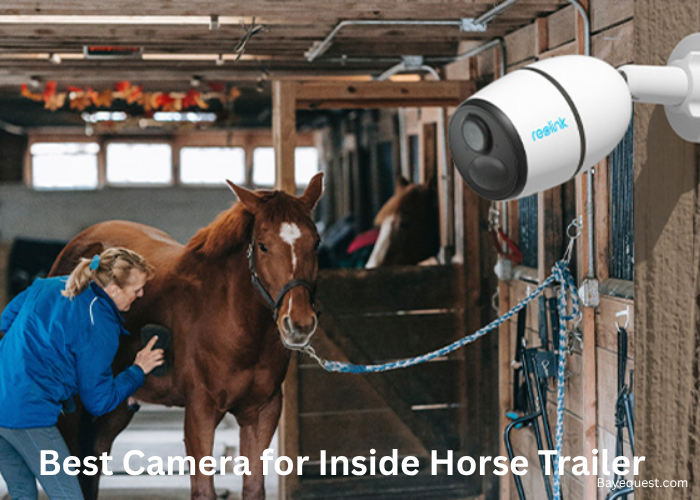Are tomatoes safe for horses? It’s a question many horse owners ponder.
Though tomatoes are common in our meals, their place in a horse’s diet isn’t straightforward.
Those hopeful eyes from your horse might tempt you to share, but understanding the risks is crucial.
Before tossing one their way, learn if tomatoes are a treat or trouble.
Surprisingly, the answer is more complex than expected, and knowing the facts can keep your horse safe and healthy.
Can Horses Eat Tomatoes? Key Takeaway
No, tomatoes are not safe for horses. The fruit can cause digestive issues, and other parts of the plant, like the leaves and stems, are even worse.
They contain a toxin called solanine, which can be harmful to horses.
Are Tomatoes Toxic to Horses?
Yes, tomatoes are toxic to horses.
The main culprit is a substance called solanine, found in the green parts of the plant, like the leaves and stems. Even the tomato fruit can cause issues.
If a horse eats tomatoes, they might experience colic, an upset stomach, or more severe problems like increased heart rate and difficulty breathing.
To avoid any risk, strictly exclude tomatoes from your horse’s diet. Stick with safe treats like apples or carrots; your horse will stay healthy and happy.
Can Horses Eat Cooked Tomatoes?
Even though cooking tomatoes can reduce some harmful substances, it’s still unsafe to feed them to horses.
Cooking decreases the levels of solanine and tomatine, but it doesn’t eliminate these toxins.
Horses have sensitive digestive systems; even small amounts of these toxins can cause problems.
Cooked tomatoes can still cause digestive issues like colic and stomach pain.
Additionally, the acidity of tomatoes remains even after cooking, which can upset a horse’s stomach.
Cooked tomatoes often contain added ingredients like salt, oil, or spices unsuitable for horses.
To keep your horse healthy and safe, avoid feeding them cooked tomatoes. Stick to horse-friendly treats like apples, carrots, or hay, which suit their dietary needs.
Can Horses Eat Tomato Leaves?
No, horses should not eat tomato leaves. Tomato leaves are dangerous because they contain high levels of solanine and tomatine.
These toxins can cause serious health problems, including colic, digestive upset, confusion and difficulty breathing.
Eating tomato leaves can lead to severe discomfort and life-threatening conditions for horses.
To ensure your horse’s safety, keep them away from tomato plants entirely, especially the leaves and stems.
Stick to feeding your horse safe, horse-friendly foods to maintain their health and well-being.
Can Horses Eat Tomato Stems?
No, horses should not eat tomato stems. Like the leaves, tomato stems contain high levels of solanine and tomatine, which are toxic to horses.
Ingesting these toxins can cause severe health issues. The risks associated with eating tomato stems are significant; even a small amount can harm a horse.
To protect your horse’s health, keep them away from all parts of the tomato plant, including the stems.
Stick to providing them with safe, horse-friendly treats and foods to ensure they stay healthy and happy.
Dangerous Elements in Tomatoes
Tomatoes contain a few elements that can be dangerous to horses. Here are some of the dangerous elements:
Solanine
Solanine is a natural toxin found in many nightshade family plants. These include tomatoes, potatoes, and eggplants.
Solanine is found in tomatoes’ green parts, such as the leaves, stems, and unripe tomatoes. This toxin acts as a defense mechanism for the plant but is harmful to horses.
When ingested, solanine can cause severe digestive issues like colic and stomach pain.
In more serious cases, it can lead to neurological problems, manifesting as confusion, difficulty breathing, and even convulsions.
Due to these risks, you must keep horses away from any green parts of the tomato plant.
Tomatine
Tomatine is another toxic compound found in tomatoes, similar to solanine. It is also part of the plant’s natural defense against pests and diseases.
Tomatine is primarily present in the green parts of the tomato plant, including the unripe fruit. Ingesting tomatine can result in significant digestive distress for horses.
Additionally, it can cause more severe symptoms like muscle weakness and a slow heart rate.
The presence of tomatine in tomatoes makes them unsuitable for horses, emphasizing the need to avoid feeding any part of the plant to them.
Lycopene
Lycopene is a red pigment found in ripe tomatoes and is safe for human consumption. It has antioxidant properties and health benefits in humans.
However, large amounts of ripe tomatoes can still pose a problem for horses. Tomatoes’ acidity and high sugar content can upset a horse’s digestive system.
While lycopene is not toxic, the overall composition of ripe tomatoes makes them an inappropriate choice for horse treats.
Atropine (Occasionally present)
Atropine is a compound found in some nightshade plants. Though it is not typically present in large amounts in tomatoes, its occasional presence in the leaves and stems of the plant adds another layer of risk.
Atropine can affect the nervous system, leading to symptoms such as dry mouth, dilated pupils, increased heart rate, and even hallucinations.
Although it is less common in tomatoes, the potential for atropine toxicity reinforces the need to keep all parts of the tomato plant away from horses.
Nutritional Content of Tomatoes
Here is a table detailing the nutritional content of tomatoes per 100 grams:
| Nutrient | Amount per 100g |
| Calories | 18 kcal |
| Water | 94.5 g |
| Protein | 0.9 g |
| Carbohydrates | 3.9 g |
| Sugars | 2.6 g |
| Fiber | 1.2 g |
| Fat | 0.2 g |
| Vitamin C | 13.7 mg |
| Vitamin A | 833 IU |
| Vitamin K | 7.9 µg |
| Folate (B9) | 15 µg |
| Potassium | 237 mg |
| Magnesium | 11 mg |
| Phosphorus | 24 mg |
| Calcium | 10 mg |
| Iron | 0.3 mg |
| Lycopene | 2573 µg |
Potential Risks of Feeding Tomatoes to Horses
Feeding tomatoes to horses comes with several risks. Let’s break it down:
Solanine poisoning
Tomatoes contain solanine, like leaves and stems, especially in their green parts. Solanine is toxic and can cause serious problems for horses.
They might get colic, which is severe stomach pain. Other signs include confusion, trouble breathing, and even convulsions. It’s a big risk.
Digestive issues
Even the tomato fruit can upset a horse’s stomach. Tomatoes are acidic and can lead to digestive problems. Your horse might get an upset stomach, diarrhea, or discomfort. It’s not worth the risk.
Allergic reactions
Horses can have allergies, too. Feeding them tomatoes might trigger an allergic reaction.
Symptoms can include itching, swelling, or more serious issues. Since allergies are hard to predict, it’s best to avoid them.
General toxicity
Tomatoes also contain harmful toxins, like tomatine. These can cause muscle weakness, slow heart rate, and other health issues.
Cooking tomatoes might reduce these toxins, but it doesn’t make them safe. The risks are still there.
Tomato Poisoning Symptoms in Horses
If a horse eats tomatoes, watch for these symptoms of tomato poisoning:
1. Your horse may become colicky.
2. Eating tomatoes can upset your horse’s digestive system, leading to diarrhea. This can be messy and uncomfortable for your horse.
3. Your horse may become unusually tired or weak. They might not want to move much or seem less energetic than usual.
4. Tomato poisoning can affect your horse’s respiratory system. Watch for any signs of labored breathing or rapid breathing.
5. Your horse might act confused or disoriented. They might have trouble responding to commands or seem out of it.
6. Check for a rapid heartbeat. This can be a sign of stress or a reaction to toxins.
7. Your horse might show muscle weakness and struggle to stand or move normally.
8. In some cases, horses might drool excessively. This can be a response to toxins irritating their system.
9. In severe cases, your horse might experience tremors or seizures. This requires immediate veterinary attention.
What Other Vegetables Can Horses Not Eat?
Horses should avoid several other vegetables due to their potential toxicity or negative health effects. Here’s a list of vegetables that horses should not eat:
- Potatoes
- Onions and garlic
- Avocado
- Rhubarb
- Cabbage (Read more on why you shouldn’t feed your horses cabbage in our other guide.)
- Cauliflower
- Peppers (All varieties)
- Eggplant
- Asparagus
- Leeks and shallots
Safe Vegetables for Horses
Here’s a list of safe vegetables that you can feed to horses. These can be given as treats in moderation:
- Carrots
- Celery
- Cucumber
- Pumpkin
- Zucchini
- Beetroot
- Turnips
- Lettuce (See also: Types of Lettuce Suitable for Horses.)
- Parsnips
- Bell peppers
- Sweet potatoes
- Squash
Can a Horse Eat Tomatoes? Conclusion
So, can horses eat tomatoes? The answer is a big no.
Tomatoes might be tasty, but they’re trouble for our equine friends. Those juicy red fruits and their green parts are packed with toxins that can make horses sick.
Stick to safer treats like apples and carrots. Your horse will thank you with happy neighs and healthy days.
Remember, when it comes to feeding your horse, it’s better to be safe than sorry. Keep those tomatoes for your salad; your horse will keep galloping in good health.
Read our article “Can horses eat potatoes?” to learn more about what’s safe and what’s not in your horse’s diet.








